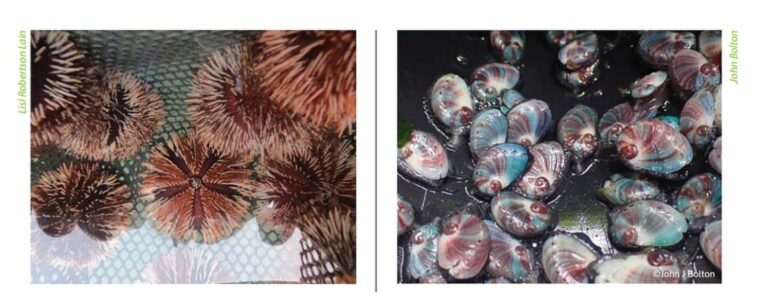Aquaculture in South Africa is really taking off, with around 230 farms countrywide, cultivating a wide variety of fish and shellfish species. Most of these are freshwater farms, and it is the freshwater sector that is indeed growing the fastest, with species like tilapia and trout in increasing demand. However, in terms of tons of produce, the marine sector is much larger and represents double the output of freshwater farms, despite coming from less than 10% of the total number of farms. In 2018, marine aquaculture represented over 86% of the value of the industry as a whole.
Given the size of these marine operations, it is increasingly important that the industry is developed in an ecologically safe and sustainable way.
The potential of aquaculture’s contribution toward food security and economic benefit is increasingly recognised at an international level. Since 2014, the Horizon 2020 EU Research and Innovation programme has made available nearly €80 billion. in funding with an emphasis on excellent science, industrial leadership and tackling societal challenges. One of the funding actions, the All Atlantic Ocean Research Alliance Flagship, aims to better understand and sustainably manage the Atlantic Ocean as a whole, with initiatives specifically focusing on aquaculture production; the four-year All Atlantic Ocean Sustainable, ProfiTable and Resilient AquacuLture(ASTRAL) project, which kicked off in September 2020, supports the development of this industry in a sustainable way, ensuring a strong climate-ocean food value chain. Sixteen partner organisations along and across the Atlantic ocean, three of which are from South Africa, are working together in acknowledgement of the need for this sector to be developed sensitively under good governance towards equitable and sustainable community benefit.
Read the full article on the ASTRAL project and the sustainable development of Atlantic aquaculture in South Africa.

